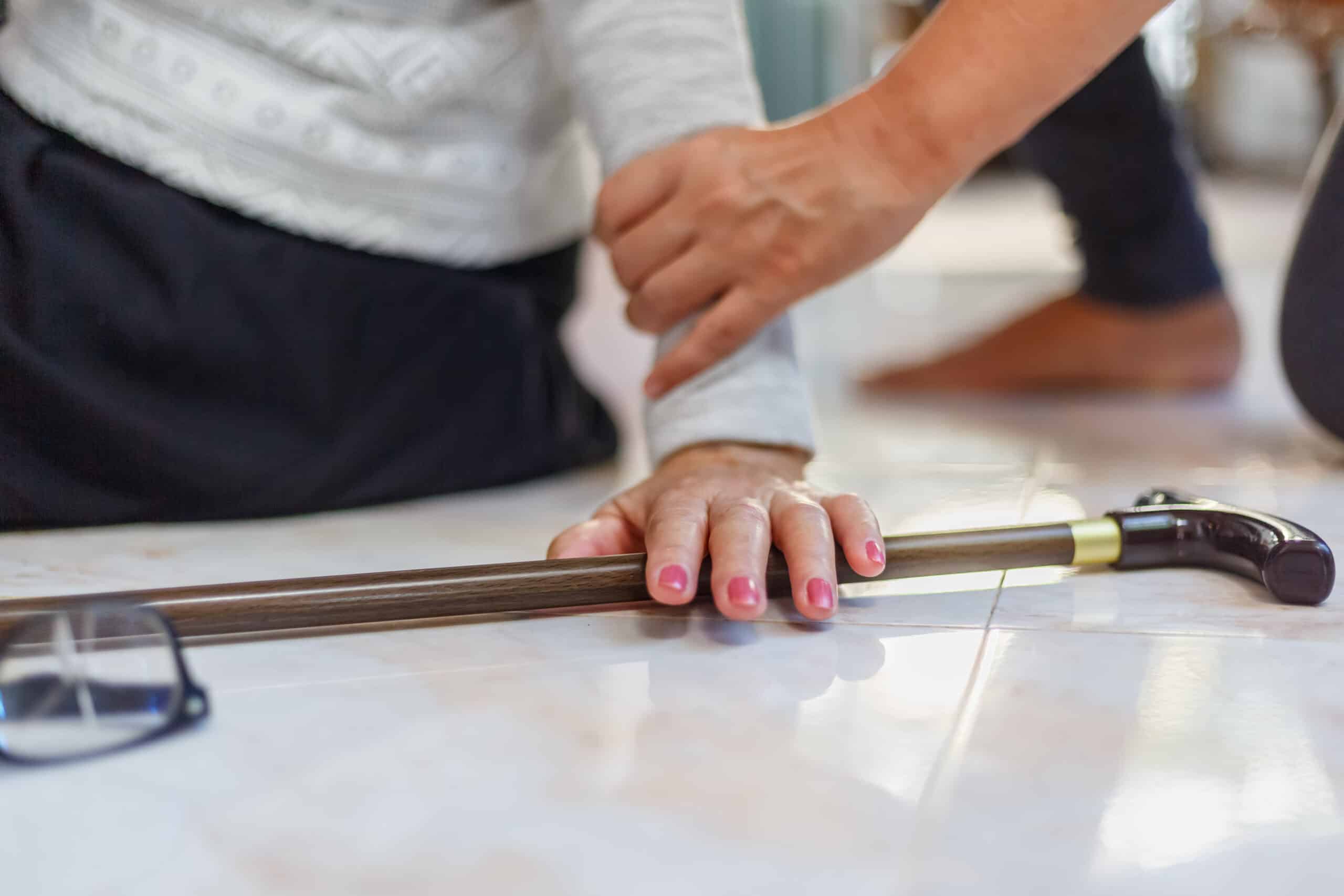More results...
Healthcare | March 16, 2023

Falls are a serious threat for aging adults and their loved ones. One in four people age 65 or older fall each year according to the CDC, and slip and fall cases are the leading cause of injury for seniors.
While it’s important to take steps to limit accidents, it’s also good to know what to do after they happen. Here’s what to do after a slip and fall accident, whether you’re the one who fell or witnessed someone else take a tumble.
It’s only natural to try and help someone back up after they fall down, but it’s important to assess the situation first to be safe.
One of the first things you should typically do after an elderly person falls is stay calm. Ask the older person if they’re hurt and if they can get up on their own. If they’re hurt or hesitate to answer, have them stay down until you can check for injuries. Look for bruises, sprains, or broken bones. If it hurts too much to move or you see any blood, call 911 and wait for help.
If you’re the one on the ground, take a few deep breaths and take your time. It’s important not to move too fast or strain yourself and make any injuries worse. Once you’re ready, take the following steps to get up without assistance:
If an older adult needs some assistance, make sure that two work together to get them on their feet. Your job is to help guide them back up, not do all the lifting. Trying to hoist someone up may only injure yourself and potentially hurt them even more, so use the following steps to safely try and help them back up again:
You should also watch out for issues well beyond the initial fall itself. Certain pains or other problems may not surface right away, so you’ll want to monitor your loved ones for 24 hours to make sure they’re fine. If you spot any late pains, soreness, or other problems, contact their primary care doctor or take them to the emergency room depending on the severity of the issue.
Even if a fall doesn’t seem too serious, it’s best to report the accident to the senior’s primary care doctor or some other relevant medical professional. They’ll be able to add this incident to their medical records at the very least.
If the fall seems to be a serious health issue, then you’ll want to notify and see a doctor right away. Falls can lead seniors to suffer muscle weakness, broken bones, and more. In addition, a doctor may also prescribe the following treatments:
The doctor isn’t the only person who should know about a fall. It’s best to let close family, friends, and other people of note know about the fall. Make sure everyone knows what happened and the current situation, whether everything is okay or if they were injured in a slip and need medical treatments. Even if people don’t live nearby, just knowing how everything is going is better than having them hear about problems second-hand.
One fall is already too many. Prevention is the best way to address trip and fall accidents, and there are steps you can take to limit the chance of falls. Here are some ways that you can lower your risk for trips and falls, both at home and when you’re out and about:
Aging adults deserve to live safe, happy lives throughout their golden years. Sometimes that means finding a new place where you can live your life to the fullest!
National Church Residences has a proven track record of providing senior housing that enables aging adults to live healthier, more satisfying lives. Find out which senior living options are in your area or give us a call at 844-465-6063 to talk to one of our friendly staff members today.
More results...
November 21, 2022 - Healthcare
Staying active at any age makes a difference. Check out these workouts for seniors to ensure that you stay healthy without overexertion.
November 29, 2022 - Healthcare
Regular balance exercises make a major difference in improving your stability. Learn about seven exercise that can improve your balance.
December 7, 2022 - Healthcare
It isn’t easy taking care of a loved one with dementia. These tips can help you take care of your loved one and make your life a little easier.